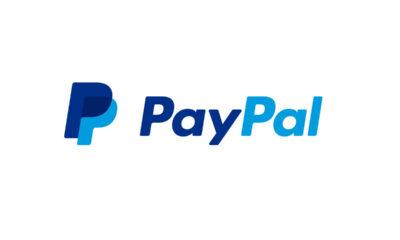Business
Luxury Hotel Market Size by Global Major Companies Profile, and Key Regions 2028

The global luxury hotel market size is projected to reach USD 238.49 billion by 2028, exhibiting a CAGR of 10.4% during the forecast period. Fortune Business Insights™ diagnoses this market in its report, titled “Luxury Hotel Market, 2021-2028”, which also states that the market value stood at USD 93.43 billion in 2020.
COVID-19 to Create Widespread Instability in the Hospitality Industry
The luxury hotel market growth is expected to shrink due to the COVID-19 pandemic, with a market registering an astonishing decline of 60.82% in 2020 and reaching a value of USD 119.55 billion in 2021. One main reason for this unprecedented downturn in the hospitality industry is the steep drop in tourist activities worldwide. As per the estimations released by the UN World Tourism Organization (UNWTO), export revenues from tourist arrivals fell by approximately USD 910 billion to 1.2 trillion in 2020, potentially shrinking the global GDP by 1.5% to 2.8%. Hotels, in particular, have been the hardest hit. For example, according to the American Hotel & Lodging Association (AHLA), 71% of hotels will not survive the next six months without federal assistance and 77% will have to lay-off workers. Luxury hotel chains, such as Le Meridien, have also resorted to cost-cutting, given the new travel bans and the possibility of movement restrictions. In sum, markets associated with the travel, tourism, and hospitality industry are set to enter a period of deep financial stress on account of the coronavirus.
Fortune Business Insights™ lists out all the luxury hotel market companies that are presently striving to reduce the impact of Covid-19 pandemic on the market:
- Mandarin Oriental Hotel Group (Quarry Bay, Hong Kong)
- Accor SA (Issy-les-Moulineaux, France)
- Shangri-La Asia Limited (Quarry Bay, Hong Kong)
- Four Seasons Hotel Limited (Toronto, Canada)
- Hyatt Hotels Corporation (Chicago, U.S.)
- The Indian Hotels Company Limited (Mumbai, India)
- Kempinski Hotels S.A. (Geneva, Switzerland)
- Hilton Hotels & Resorts (McLean, U.S.)
- InterContinental Hotels Group plc (Denham, U.K.)
- Marriott International, Inc. (Maryland, U.S.)
Emergence of Eco-friendly Luxury Hotels to Accelerate the Market
The development of hotels guided by the principles of environmental sustainability has altered perceptions surrounding luxury accommodations. The increasing environmental consciousness among new-age travelers has redefined the dynamics hitherto governing the hospitality industry, leading to the construction of eco-friendly luxury hotel brands. For example, the Andaz Maui at Wailea Resort in Hawaii has been conceived to minimize waste and emissions. The resort features a solar water heater system and variable speed chillers, while in the in-room settings, the glassware is made from recycled materials along with automated temperature controls. Similarly, at the Saffire Freycinet in Tasmania, Australia, Modwood is used as a wood substitute, LED technology is extensively utilized to make the entire facility energy-efficient, and natural cycle airflow systems have also been installed. The growing popularity of such premium properties in exotic locations is set to accelerate the expansion of this market.
Highlights of the Report
This report offers a detailed analysis of the various market drivers and trends, along with a careful study of the various market restraints. Moreover, the report contains a comprehensive examination of the regional dynamics of the market, as well as an in-depth evaluation of the competitive landscape of the market. In addition to these factors, the report supplies an exhaustive assessment of all market segments.
Market Segments
Based on room type, the market has been divided into luxury, upper-upscale, and upscale. By category, the market has been segmented into chain and independent. On the basis of geography, this market has been segregated into North America, Europe, Asia Pacific, South America, and the Middle East & Africa.
Regional Insights
High Spending Capacity of Travelers to Fuel the Market in North America
Backed by a high spending potential of consumers, North America is anticipated to dominate the luxury hotel market share during the forecast period. A report by the US Travel Association showed that in 2019, domestic travelers spent USD 972 billion, of which roughly 25% was spent on lodging facilities. Furthermore, expenditures on hotels and resorts of both domestic and international travelers rose by 4.1% in 2019 from 2018 levels, as per the report, indicating a strong willingness to spend on vacations by consumers. The North America market size stood at USD 30.66 billion in 2020.
In Europe, the market will enjoy a period of sustained growth as the continent is home to some most attractive tourist places on the planet. The UNWTO, for instance, observed that Europe accounted for nearly half of all tourist arrivals globally in 2018. In Asia Pacific, on the other hand, the expanding upper-middle-class and middle-class populations are pulling international luxury hotel chains to establish their presence in countries such as India, China, and Indonesia.
Competitive Landscape
Key Players to Tap Opportunities in Developing Markets
With the standard of living transforming in the emerging markets of Asia and Africa, luxury hotel brands are actively amplifying their presence and operations in these countries. Several hotel chains are coming up with new offers and creating unique economy segments and services to attract travelers and entrench their regional position.
Industry Developments:
- January 2021: Marriott International announced its plans of opening 100 new properties across Asia Pacific in 2021. The aim is to bring brands and exquisite experiences to travelers and guests in unexplored destinations in the region.
- March 2020: Luxe Collection opened its first branded property in New York City, the Luxe Life Hotel New York. To this will be added new 4- and 5-star hotels – Zeavola Resort (Thailand), Il Tornabuoni (Florence), Eurostars Magnificent Mile (Chicago), CoolRooms Atocha (Spain), and The Belmont (Dallas).
Browse Detailed Summary of Research Report:
https://www.fortunebusinessinsights.com/luxury-hotel-market-104408
Business
Carpet Flooring: Transform Your Space with Comfort and Style

Carpet flooring remains a favorite choice for both homes and businesses. Why? Because it makes spaces feel warm, inviting, and cozy. Carpets aren’t just about looks—they add comfort, help save energy, and can completely change the vibe of a room. This guide aims to give you everything you need to know about choosing, installing, and caring for carpet flooring. Whether you’re dreaming of a soft bedroom carpet or a durable option for high-traffic areas, I’ve got you covered.
Understanding Carpet Flooring
What Is Carpet Flooring?
Carpet flooring is a soft covering made of fibers woven into fabric. Its main parts include the pile (the surface fibers), backing (the foundation), and fibers (materials like nylon, polyester, or wool). The fibers give carpets their texture and appearance. Modern carpets come in various materials, each offering different qualities, from wool’s natural softness to nylon’s toughness.
History and Evolution of Carpet Flooring
Carpets have been around for thousands of years, originally crafted by hand from animal hides or plant fibers. Over time, manufacturing became more advanced, making carpets more durable and diverse. Today, we have endless patterns, colors, and textures, thanks to technology. Innovations like stain-resistant fibers and eco-friendly materials have made carpets both practical and stylish.
Types of Carpet Flooring
Broadloom vs. Carpet Tiles:
Broadloom carpets are large rolls, typically measuring 12-15 feet wide, suited for smooth, seamless looks.
Carpet tiles are smaller squares or rectangles, easy to install and replace. They work well in commercial spaces or areas prone to damage.
Loop Pile, Cut Pile, and Combination Pile:
Loop pile carpets have uncut fibers looped into the backing, making them strong and good for high traffic.
Cut pile carpets have fibers cut at the surface, offering a plush feel, perfect for bedrooms.
Combination pile uses both, combining durability with softness for versatile use.
Benefits of Carpet Flooring
Comfort and Aesthetics
Nothing beats the softness of a carpet underfoot. It adds a warm, plush look that instantly makes a room more inviting. Plus, circular patterns and bold textures let you customize your space easily.
Insulation and Energy Efficiency
Carpets act like a blanket, trapping heat and reducing drafts. Studies show that they can save up to 10% on heating bills. Additionally, they absorb sound, making rooms quieter and more peaceful.
Safety and Maintenance
Carpets create a cushioned surface, reducing slips and falls—especially important in households with children or elderly people. Modern fibers also resist stains and are simple to clean, making upkeep manageable.
Cost-Effectiveness
Compared to hardwood or tile, carpets usually cost less to buy and install. Plus, their friedly long haul means they last many years with proper care, giving you good value for money.
Selecting the Right Carpet Flooring
Factors to Consider
Think about how much foot traffic the room gets. High-traffic zones need durable carpets, while bedrooms can have softer, plush options. Budget plays a big role, too. Match your style with colors and patterns that fit your decor—bright, neutral, or bold.
Popular Carpet Styles and Their Best Uses
Plush Carpets:
Ideal for bedrooms and living rooms; they offer a smooth, luxurious feel.
Berber and Loop Carpets:
Perfect for busy hallways or offices because they hide dirt and withstand wear well.
Shag Carpets:
Great for adding a dramatic look; they’re soft and cozy, perfect for casual spaces.
Expert Recommendations
Interior designers suggest choosing carpets with a high rating for durability if you want them to last. Certified options, like those with Green Label Plus, are eco-friendly and healthier for indoor air quality.
Installing Carpet Flooring
Preparation and Planning
Start with a clean, level subfloor. Remove old flooring and check for any damage. Measure the room accurately to order enough material—it’s better to have a little extra than come up short.
Installation Process
The process involves cutting the carpet to size, laying down adhesive or using tack strips, and stretching the carpet tight across the floor. Finally, trimming the edges and sealing seams completes the look.
Cost Considerations
Expect to pay anywhere from $3 to $10 per square foot, depending on the type of carpet. Don’t forget additional costs for padding, transition strips, or repairs. Professional installation might add to the price but ensures a smooth, long-lasting fit.
Maintenance and Longevity of Carpet Flooring
Daily and Weekly Care
Vacuum regularly—at least once a week—to keep dirt at bay. Attend to spills immediately with gentle blotting and mild cleaners. Avoid rubbing to prevent fiber damage.
Deep Cleaning and Professional Care
Schedule steam cleaning every 12-18 months for best results. Professional services remove deep dirt and allergens, extending your carpet’s lifespan.
Extending Carpet Life
Use rugs or mats in high-traffic areas to reduce wear. Move furniture periodically to prevent indentations, and keep doors open for good airflow. With proper care, carpets can serve you well for 10-15 years.
Troubleshooting Common Issues
Watch out for fiber crushing, stubborn stains, or mold caused by excess moisture. Small repairs or patching can fix minor tears. When carpets become worn or stained beyond repair, it’s time for a replacement.
Purchasing Tips for Carpet Flooring
Shopping Strategies
Compare several stores or websites to find the best quality and price. Look for certifications like Green Label Plus to ensure eco-friendliness. Ask about warranties to protect your investment.
Sustainable and Eco-Friendly Options
Choose carpets made from recycled fibers or low VOC adhesives. These choices are better for the environment and improve indoor air quality, especially in homes with kids or pets.
Best Places to Buy Carpet Flooring
Local flooring stores often provide expert advice and hands-on assistance. Big-box retailers can be budget-friendly, but online options sometimes offer more variety. Skilled staff can help you select the perfect product for your needs.
Conclusion
Carpet flooring offers comfort, style, and energy savings that few other options match. Taking the time to choose the right type, style, and installation method ensures long-term satisfaction. With proper care and maintenance, your carpet becomes a cozy foundation that enhances your space’s look and feel. When shopping, prioritize durability and personal style—your perfect carpet awaits.
Credit:
High Plains Flooring & Blinds
6614 Camden Blvd, Fountain, CO 80817
Hours:
Mon-Fri: 9am – 5pm
Sat: 9am – 1pm, Sun: Closed
Find us on the Maps:
g
Business
Cheap Doesn’t Mean Cheap Looking: Affordable Hardwood Floors Trends

Many people think that good-looking hardwood floors have to come with a high price tag. They believe that affordable options will look cheap or outdated. But that isn’t always true. You can find stylish, durable, and affordable hardwood flooring that turns any room into a high-end space.
Today, more trends are making inexpensive hardwood look luxury. Without breaking the bank, you can still get floors that impress.
Understanding the Perception of Cheap-Looking Hardwood Floors
The stigma around inexpensive flooring
Some think that cheap hardwood always means low quality. They see it as dull, thin, or poorly finished. This makes many hesitate to pick affordable options, worried about resale value or style. It’s a common myth that lower costs come with lower class.
How quality is measured
What makes hardwood high quality? Usually, it’s about thickness, finish, and grain type. Thicker planks last longer and handle wear better. A smooth, high-quality finish looks better and lasts longer. The type of wood grain can also make a big difference. Careful craftsmanship and good materials show off quality, even in affordable floors.
Affordable Hardwood Floor Trends
Trend 1: Wide Planks for a Modern Look
Wide planks are trending now because they give a room a spacious, sleek feel. These larger boards look more expensive and are often cheaper per square foot. They are easier to install and come in many finishes. Sourcing wider planks from local suppliers can save money too.
Trend 2: Reclaimed and Recycled Wood
Reclaimed wood is popular not only because it’s eco-friendly but also because it looks authentic and stylish. Every piece has character, knots, and a weathered charm that high-end flooring can’t match. Plus, using recycled wood often costs less than new, premium hardwood.
Trend 3: Natural, Neutral Color Palettes
Colors like soft browns, greys, and beige are in. These shades make floors look more upscale because they match any decor. Neutral tones also hide dirt better and create a timeless style. It’s easier to update accessories if your flooring stays simple and elegant.
Trend 4: Textured and Hand-Scraped Finishes
Texture adds depth and disguises scratches or dents. Hand-scraped or wire-brushed finishes give a crafted look without the price of custom work. Many affordable engineered hardwoods now come with these textures, saving you money while adding style.
Trend 5: Innovative, Budget-Friendly Materials
Engineered hardwood options have come a long way. They look very real, with detailed grain patterns and matte finishes. Even laminate or hybrid floors mimic the appearance of natural wood perfectly. These materials cost less but can give your space a high-end feel.

Also read: Secrets to Cleaning Your Home in Half the Time
Tips for Achieving Luxurious Looks on a Budget
Choosing the Right Grade and Finish
Select flooring grades that mimic premium styles. Premium-looking finishes like matte or satin add elegance. You don’t need the top-tier grade to get a rich look — just choose carefully and focus on finish quality.
Proper Installation Techniques
A good installation makes all the difference. Hiring a professional ensures a neat, seamless appearance. If you do it yourself, pay attention to leveling and spacing. Small efforts in installation can make affordable floors look custom and luxury.
Maintenance and Upkeep
Keeping your floors clean is key. Regular sweeping and gentle cleaning extend their life and keep them looking fresh. Avoid harsh chemicals, and use mats to trap dirt. Well-maintained floors look more expensive and last longer, even if they cost less initially.
Real-World Examples of Affordable Hardwood Success
Case Study 1: Chic Urban Apartments
A city apartment used budget-friendly engineered hardwood with a wide plank design. The result? A modern, spacious look that rivaled much more expensive choices. Reclaimed wood accents added character without extra cost.
Case Study 2: Suburban Home Renovation
A family renovated their home on a tight budget. They chose neutral, textured floors with hand-scraped finishes. Proper installation and regular care brought a touch of luxury that impressed even friends and visitors.
Expert Opinions
Many flooring specialists confirm that affordable doesn’t mean low class. Interior designers often mix budget options with high-end accessories to create stunning spaces. They say focus on finish quality, texture, and color for a luxurious look.
Conclusion
Affordable hardwood flooring can look just as classy as high-end options when you pick the right styles and techniques. Trends like wide planks, reclaimed wood, and textured finishes are making budget floors more appealing.
By focusing on quality sourcing, smart design choices, and good upkeep, you can get flooring that feels luxurious without overspending. Remember, style isn’t about cost — it’s about how you choose and care for what you have. So, don’t shy away from budget-friendly hardwood. Instead, let these trends inspire your next home upgrade.
Reference:
ARTISTIC FLOORING
Whether you’re looking for the best flooring options, need a quote, or want to schedule a free flooring consultation, we’re just a call or click away.
artisticflooringva@gmail.com
Find Us
3200 Dam Neck Road Suite #110
Virginia Beach, VA 23453
Business
Why do Businesses Need Human resource Consulting Services?

Human resource consulting firms play a vital role in today’s business landscape. They offer several key benefits and importance to organizations:
Expertise and Specialization:
HR consultants bring specialized knowledge and expertise to the table. They stay up-to-date with the latest HR trends, best practices, and legal regulations. This expertise is precious for businesses without dedicated HR staff or require support in complex HR areas.
Cost-Effective Solutions:
Engaging HR consultants can often be more cost-effective than hiring and maintaining an in-house HR department. Businesses can access high-quality HR services as needed, reducing fixed labor costs.
Customization:
HR consultants tailor their services to meet the specific needs of each client. Whether recruitment, employee training, or policy development, consultants design solutions that align with the organization’s unique goals and challenges.
Objective Perspective:
Consultants offer an objective and impartial perspective on HR matters. They can provide insights and recommendations without being influenced by internal biases or politics, which can be valuable for making difficult HR decisions.
Efficiency and Productivity:
HR consultants can streamline HR processes, making them more efficient. This can improve productivity, as employees spend less time on administrative tasks and more on strategic activities.
Compliance and Risk Management:
HR consultants help organizations comply with labor laws and regulations, reducing the risk of legal issues, fines, and reputational damage. They also assist in implementing best practices for risk management.
Strategic Focus:
Organizations can free up their internal resources by outsourcing HR tasks to consultants to focus on core business activities and strategic initiatives. This can lead to improved business performance and growth.
Scalability:
HR consulting firms can adapt to an organization’s changing needs. Whether a business is expanding, downsizing, or facing other transitions, consultants can provide flexible HR solutions to support these changes.
Access to Technology:
Many HR consulting firms have access to advanced HR technology and software solutions that may be cost-prohibitive for smaller organizations to implement independently. This technology can enhance HR processes and data management.
Talent Acquisition and Development:
HR consultants excel in talent acquisition and development. They can help organizations attract top talent, assess employee potential, and implement training and development programs to improve workforce skills.
Confidentiality:
HR consultants are bound by confidentiality agreements, ensuring that sensitive HR issues and employee data are handled with discretion and professionalism.
Conflict Resolution:
Consultants can mediate and assist in resolving workplace conflicts and issues, promoting a harmonious work environment.
Global Expertise:
For businesses with international operations, HR consultants with global expertise can help navigate the complexities of international HR regulations and practices.
In summary, human resources consulting firms provide valuable support to organizations by offering expertise, cost-effective solutions, and a strategic approach to managing their workforce.
Their ability to adapt to changing needs, ensure compliance, and improve HR processes makes them an essential resource for businesses looking to thrive in today’s competitive environment.

 Entertainment5 years ago
Entertainment5 years agoBruce Dickinson is seen with fitness coach Leana Dolci
- Business4 years ago
PNC Bank Customers Can Now Send Money Using Email or Mobile Phone

 Entertainment11 months ago
Entertainment11 months agoGina Stewart Hottest Grandma poses completely naked

 Business3 years ago
Business3 years agoPayPal quietly reintroduces $2,500 “misinformation” fine

 Entertainment4 years ago
Entertainment4 years agoCheck Out the WPC16 Schedule Today!

 Entertainment5 years ago
Entertainment5 years agoGorgeous 12 year old girl with 50,000 Instagram followers

 Entertainment5 years ago
Entertainment5 years agoAshley James hits back at cruel trolls who tell her to ‘just stop’ after she shares a video of her ‘big boobs’ being taped for a film event
- Business5 years ago
Брокер для скальпинга ECN счет форекс это лучшее для скальпа












































